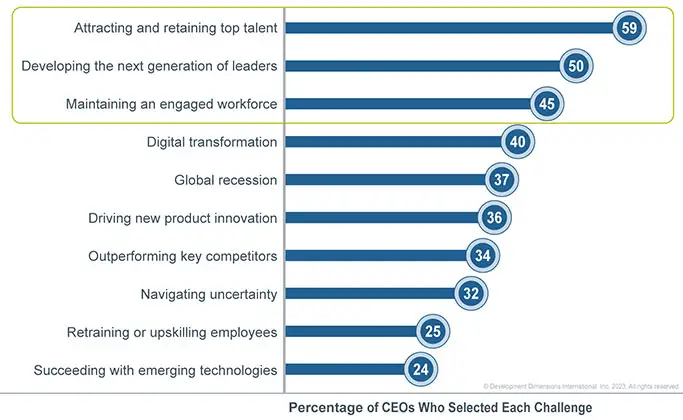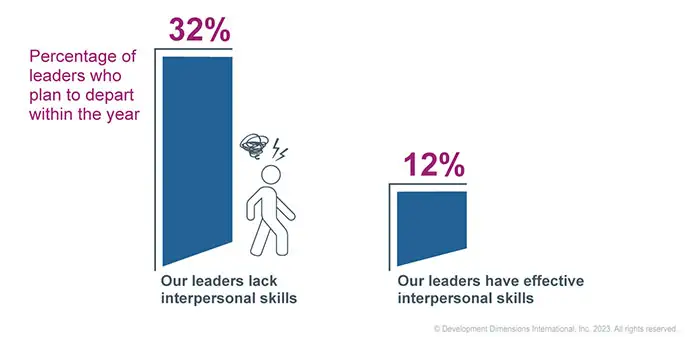GLOBAL LEADERSHIP FORECAST 2023
BY THE NUMBERS
Top CEO Concerns

Retaining and Developing Future Leaders Outranks Economic and Business Concerns
In the wake of one of the most dramatic workforce reshufflings in history, CEOs are acutely aware of the fragility of their workforce. Overwhelmingly, the 529 CEOs in our survey ranked talent-related challenges as the ones that keep them up at night, recognizing that people will unequivocally be the driver of their success across all other business and economic challenges.
Even as concerns about recession rise to the forefront, CEOs are deeply sensitive to the fact that their most crucial group of workers—highly skilled specialists and future leaders—may leave for a better experience at a competitor, change career paths, or even take a break from the workforce due to burnout.
Outside of talent challenges, digital transformation has risen to the top as companies seek to modernize their data infrastructure, optimize their operations, and create more compelling customer experiences. Coupled with driving innovation, CEOs see these challenges as critical to survival amid a potential recession.
The greatest challenge in taking on my role as CEO has been to build and retain a winning team.
- CEO, Consumer Products and Retail
WHERE TO FOCUS
Drive Retention to Enable Strategy
On average in the last year, 54% of companies saw their turnover rate increase, according to our survey. This has made retention an acute challenge that CEOs and CHROs recognize they must confront to fuel their success against all other challenges.
However, as employee expectations change, companies need to embrace significant changes to their company culture, especially as they look to attract and retain younger workers.
Among the factors that influence retention, ineffective leaders stands out as the number-one reason why leaders would want to leave their company within the year.
When leaders did not view their company’s leadership as effective with interpersonal skills, they were 3.5X more likely to indicate they wanted to leave within the year.
A close second were options for flexible work. When flexible arrangements was not supported, leaders were 1.3X more likely to indicate an intention to leave their company within the year. This trend was even higher among workers under the age of 35, who were 2.2X more likely to plan to leave companies where flexible work was not supported.
CEOs who are sounding the alarm about talent in their organizations need to evaluate their leadership culture. They need to think about how they set the tone and develop leaders who lead from a holistic, human-centered approach that incorporates the personal and practical needs of work.
BY THE NUMBERS
Employees Won't Tolerate Ineffective Interpersonal Skills

